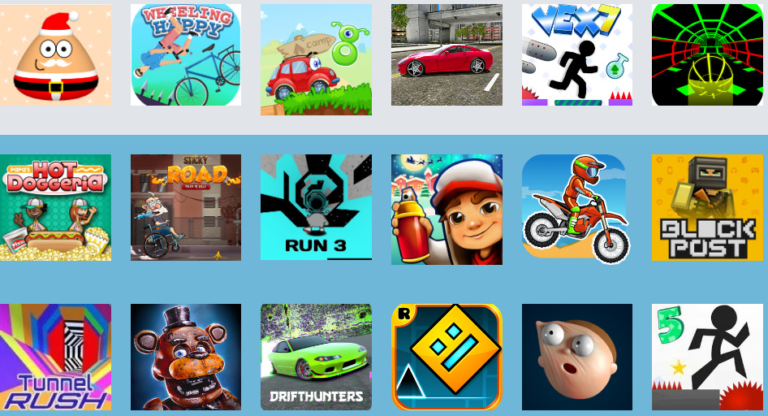The Impact of 5G on Cross Platform Mobile Game Development
Mobile gaming has become an integral aspect of our life in the current digital age. The gaming industry has recognized cross-platform mobile game development as a critical component due to the growing desire for gaming experiences across many platforms. We will examine the importance, difficulties, and best practices of cross platform game creation as we delve into the nuances of this extensive guide.
Knowing How to Develop Mobile Games Across Platforms
The process of developing mobile games that function flawlessly across many operating systems, including Windows, iOS, and Android, is known as cross platform mobile game development. Cross-platform development makes use of frameworks and technologies that allow developers to write code once and release it across several platforms, in contrast to traditional game development methods that call for separate coding for each platform.
The Significance of Cross-Platform Development
The rise of mobile gaming has led to a diverse ecosystem of devices and operating systems. In this landscape, cross-platform development offers several advantages:
Broader Audience Reach: By targeting multiple platforms, developers can access a larger pool of potential players, maximizing the reach and impact of their games.
Cost Efficiency: Cross-platform development streamlines the coding and testing process, reducing development time and costs associated with maintaining separate codebases for each platform.
Consistent User Experience: With cross platform development, developers can ensure a consistent user experience across different devices, enhancing player satisfaction and engagement.
Faster Time-to-Market: By eliminating the need to develop separate versions for each platform, cross platform development accelerates the time-to-market for games, allowing developers to capitalize on emerging trends and opportunities swiftly.
Challenges in Cross-Platform Development
While cross-platform development offers numerous benefits, it also presents unique challenges that developers must overcome:
Platform Fragmentation: Each platform has its specifications, performance capabilities, and design guidelines, posing challenges in ensuring compatibility and optimization across all devices.
Performance Optimization: Achieving optimal performance on various platforms requires careful optimization of code, graphics, and resources to deliver smooth gameplay experiences.
Feature Parity: Maintaining feature parity across different platforms can be challenging, especially when integrating platform-specific functionalities or updates.
Testing Complexity: Testing games across multiple platforms adds complexity to the quality assurance process, requiring thorough testing on various devices to ensure compatibility and functionality.
Best Practices for Cross-Platform Development
To address the challenges and maximize the benefits of cross-platform development, developers can adopt the following best practices:
Choose the Right Development Tools
Selecting the appropriate development tools and frameworks is crucial for successful cross-platform development. Popular options include Unity, Unreal Engine, and Xamarin, each offering unique features and capabilities tailored to different project requirements.
Prioritize Performance Optimization
Optimizing performance is essential for delivering a seamless gaming experience across all platforms. Developers should leverage platform-specific optimizations, such as hardware acceleration and rendering techniques, to ensure smooth gameplay and responsiveness.
Maintain Code Modularity and Reusability
Designing modular and reusable code structures enables developers to streamline the development process and maintain code consistency across platforms. By abstracting platform-specific functionalities into reusable components, developers can minimize code duplication and facilitate future updates and enhancements.
Implement Cross-Platform Testing Strategies
Adopting comprehensive testing strategies is critical for identifying and addressing compatibility issues across different platforms. Developers should conduct thorough testing on a diverse range of devices, simulators, and emulators to ensure consistent performance and functionality.
Stay Updated with Platform Changes
The mobile landscape is constantly evolving, with new devices, operating system updates, and platform requirements emerging regularly. Developers should stay abreast of these changes and update their games accordingly to maintain compatibility and leverage new features and optimizations.
Collaboration and Networking
Collaborating with other developers, artists, and industry professionals can provide valuable insights, resources, and support throughout the game development process. Developers should actively participate in developer communities, networking events, and conferences to exchange ideas, seek advice, and forge partnerships that can propel their game to success.
Continuous Learning and Improvement
Game development is a dynamic and iterative process that requires continuous learning and improvement. Developers should embrace a growth mindset, seeking opportunities to expand their skills, experiment with new technologies, and learn from both successes and failures. By continuously iterating on their game and incorporating player feedback, developers can refine and enhance the gaming experience over time.
Conclusion
In conclusion, cross-platform mobile game development offers a myriad of opportunities for developers to create engaging and immersive gaming experiences that resonate with players across various platforms. By understanding the significance, challenges, and best practices associated with cross platform development, developers can unlock the full potential of their games and thrive in the competitive mobile gaming industry.
follow Are Potato Chips Good for You? Separating Fact from Fiction







